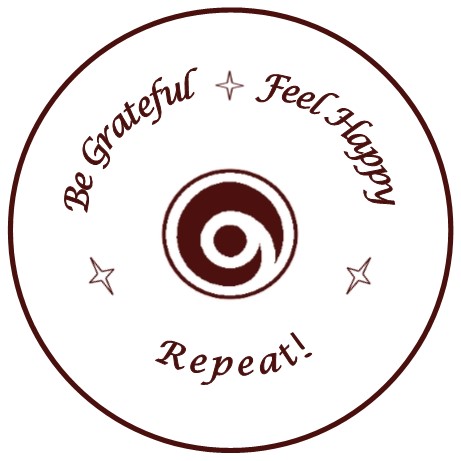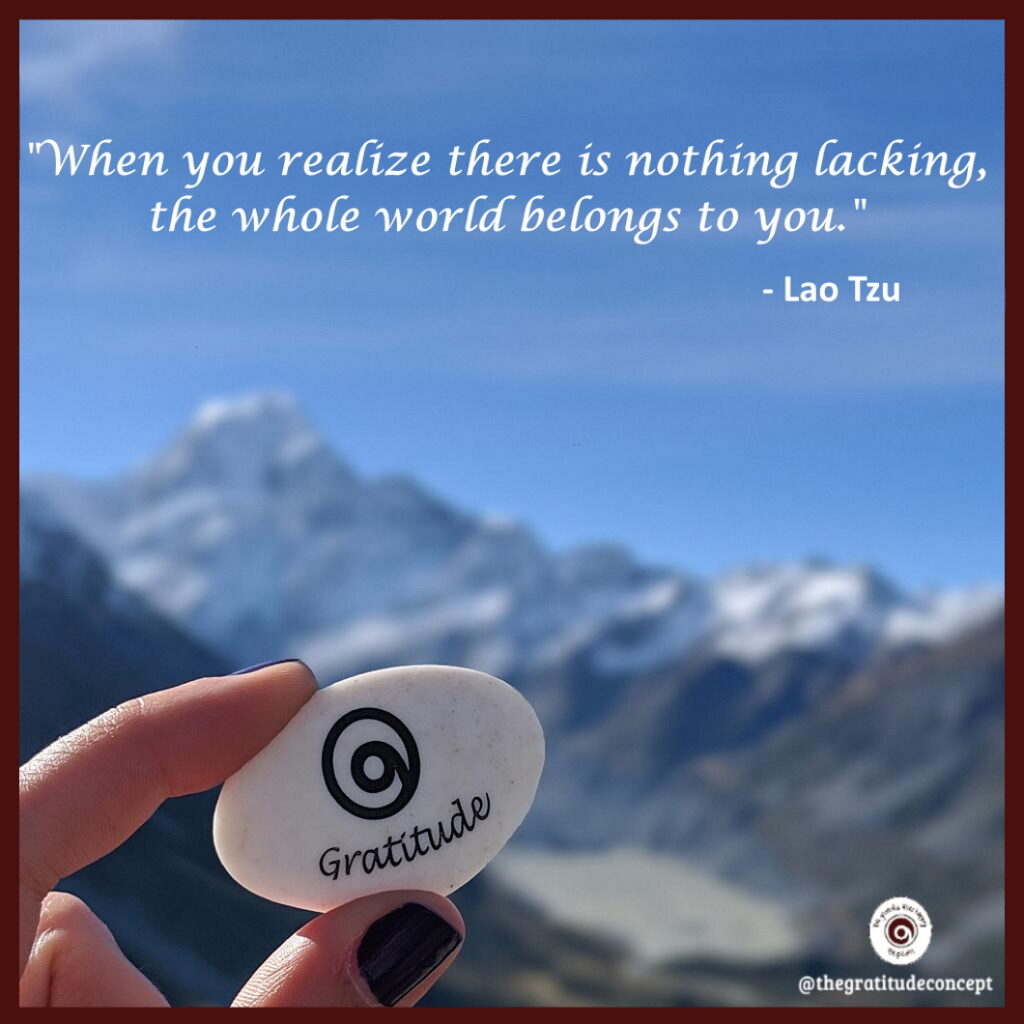This quote by Lao Tzu, a legendary Chinese philosopher and writer, speaks to the power of perspective—specifically, the kind shaped by gratitude. When we shift our focus from what’s missing to what we already have, we begin to see abundance all around us. In fact, when we start appreciating what’s already present, we tap into a sense of richness that was there all along.
Gratitude can change the lens through which we experience life, helping us recognize that we already have more than enough. In fact, when we practice gratitude in our daily lives, we begin to notice and appreciate what we already have—our health, our relationships, the food on the table, and even the smallest daily blessings. This shift in awareness dissolves feelings of scarcity and longing, replacing them with a sense of contentment and inner richness. In that state, we no longer feel defined by what we don’t have, and instead, we feel empowered by what we do. The “whole world” belongs to us not because we possess it materially, but because we are fully present in it, awake to its gifts. Gratitude helps us unlock that perspective,
This aligns closely with The Gratitude Concept, which emphasizes the transformative energy of acknowledging and appreciating life’s gifts, big and small. Gratitude opens our eyes to the richness of the present moment, and in doing so, creates a sense of wholeness and contentment. Rather than chasing fulfillment, we discover it’s already here—waiting in our awareness, waiting in our thanks.
Gratitude isn’t just a feel-good emotion—it’s a powerful practice backed by science. According to research by Dr. Robert Emmons of UC Berkeley, gratitude has been shown to significantly improve mental, emotional, and even physical well-being. People who regularly engage in gratitude practices—like journaling what they’re thankful for or reflecting on positive experiences—report higher levels of happiness, stronger relationships, and lower levels of stress and depression. Emmons’ studies show that gratitude literally rewires the brain to focus on the positive, helping to break cycles of negativity and anxiety that can otherwise dominate daily life.
Incorporating gratitude into your routine doesn’t require grand gestures. Simple habits, like writing down three things you’re thankful for each morning or expressing appreciation to someone you care about, can create lasting shifts in perspective. Over time, these small moments of acknowledgment help us become more resilient, more compassionate, and more deeply connected to the present. Gratitude grounds us—it reminds us that even when life feels chaotic or uncertain, there is still beauty, still joy, still enough. And as Lao Tzu suggested, when we begin to see that nothing is truly lacking, we stop striving to “get more” and start living from a place of fullness.
The Gratitude Stone is a simple yet powerful tool designed to help anchor us in a mindset of appreciation. By carrying the stone in your pocket or placing it somewhere visible, it serves as a physical reminder to pause and reflect on what you’re grateful for throughout the day. Each time you see or touch the stone, you’re encouraged to think of something positive—whether it’s a person, a moment, or a simple joy. This consistent practice helps train your mind to focus on abundance rather than lack. In line with Lao Tzu’s wisdom, the Gratitude Stone reinforces the idea that contentment comes not from acquiring more, but from recognizing that we already have enough. It’s a small object that cultivates a powerful perspective shift—helping us stay grounded in gratitude, present in the moment, and open to the richness of life as it is.

